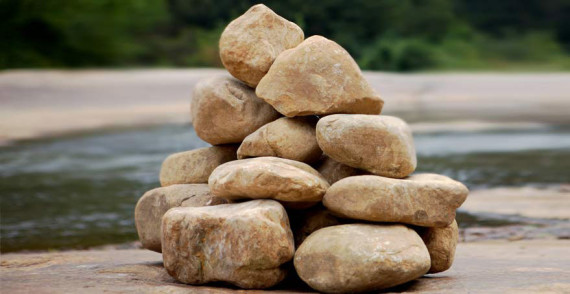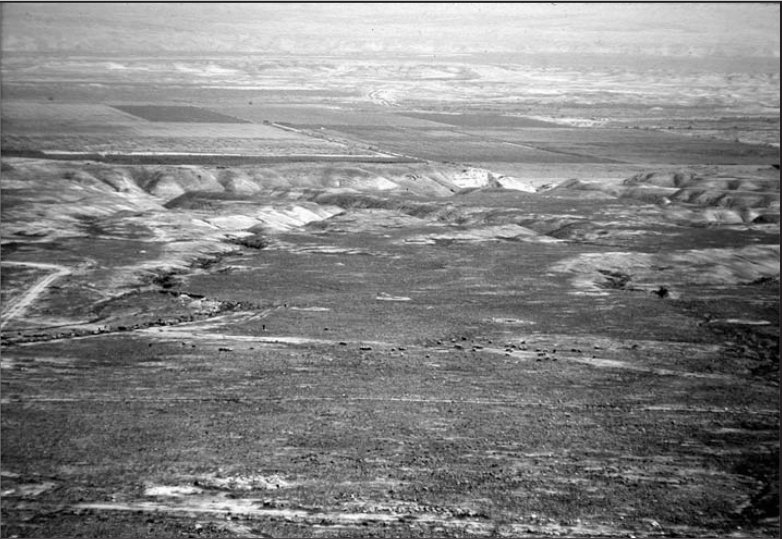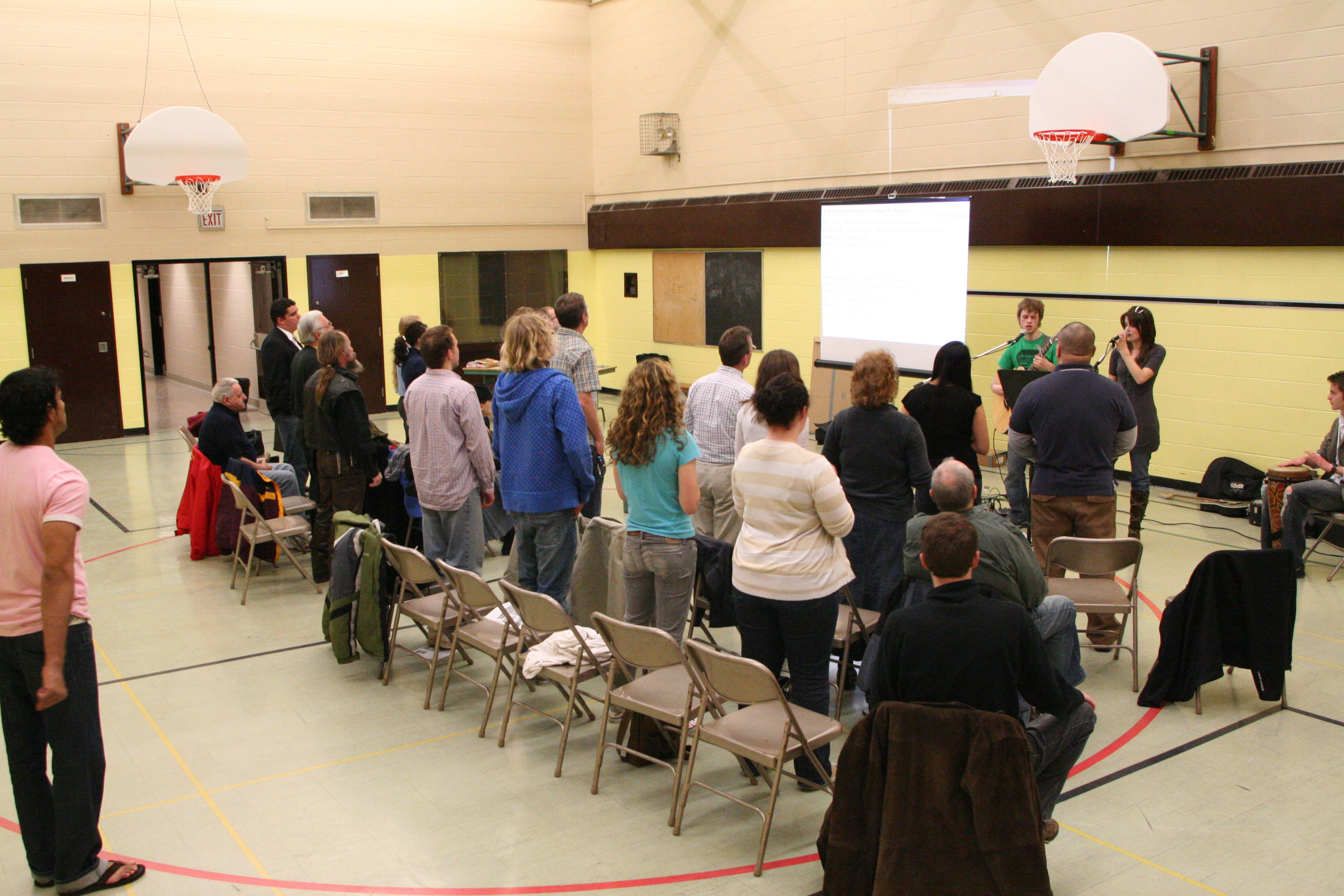- The practice of “raising up stones” is a powerful one that we should be doing to grow in our faith.
- Here are some stories to get you started.
Play Audio:
1. The Story of the 12 Stones in Joshua 4
- At the end of the first book of the Bible, Genesis, we read how the descendents of Jacob, who was also called Israel, went down into Egypt.
- The next four books: Exodus, Leviticus, Numbers & Deuteronomy describe how they
- became slaves
- Were led out of Egypt by Moses
- Spent 40 years in the wilderness
- The sixth book, Joshua, tells of how they finally came into the promised land
- This was going to be terrifying for this new generation
- 40 years ago, the previous generation had see the Red Sea parted
- Now they are going into a terrifying new experience
- But now, God decides to encourage them that he is still with them
Joshua 3 & 4
- Joshua said to the Israelites, “Come here and listen to the words of the LORD your God.
- This is how you will know that the living God is among you…
- …as soon as the priests who carry the ark of the LORD—the Lord of all the earth—set foot in the Jordan, its waters flowing downstream will be cut off and stand up in a heap.”…
- Now the Jordan is at flood stage all during harvest. Yet as soon as the priests who carried the ark reached the Jordan and their feet touched the water’s edge,
- the water from upstream stopped flowing. It piled up in a heap a great distance away, at a town called Adam in the vicinity of Zarethan, while the water flowing down to the Sea of the Arabah (the Salt Sea) was completely cut off. So the people crossed over opposite Jericho.
- The priests who carried the ark of the covenant of the LORD stood firm on dry ground in the middle of the Jordan, while all Israel passed by until the whole nation had completed the crossing on dry ground.
- When the entire nation was on the other side, the LORD told Joshua,
- “Select for yourselves twelve men from the people, one per tribe.
- Instruct them, ‘Pick up twelve stones from the middle of the Jordan, from the very place where the priests stand firmly, and carry them over with you and put them in the place where you camp tonight.’ ”
… - The stones will be a reminder to you. When your children ask someday, ‘Why are these stones important to you?’
- tell them how the water of the Jordan stopped flowing before the ark of the covenant of the LORD. When it crossed the Jordan, the water of the Jordan stopped flowing. These stones will be a lasting memorial for the Israelites.”
… - Now Joshua set up in Gilgal the twelve stones they had taken from the Jordan.
- He told the Israelites, “When your children someday ask their fathers, ‘What do these stones represent?’
- explain to your children, ‘Israel crossed the Jordan River on dry ground.’
- For the LORD your God dried up the water of the Jordan before you while you crossed over. It was just like when the LORD your God dried up the Red Sea before us while we crossed it.
- He has done this so all the nations of the earth might recognize the LORD’s power and so you might always obey the LORD your God.”
based on NET Bible
- Archeological site, thought to be Gilgal, located eight miles north of ancient Jericho
- A settlement found, dating back thousands of years
- Can you guess what I am going to say we should lean from this story?
- Here is the principle:
- Some personal stories of “stones” I have set up
- Here is my third example...
2. The Greatest Stone
3. The stone called “Ebenezer” in 1 Samuel 7
The story of the stone called “Ebenezer” in 1 Samuel 7
1 Samuel 7
- Samuel said to all the people of Israel, “If you are really turning to the LORD with all your hearts, remove from among you the foreign gods and the images of Ashtoreth. Give your hearts to the LORD and serve only him. Then he will deliver you from the hand of the Philistines.”
- So the Israelites removed the Ba-als and images of Ashtoreth. They served only the LORD.
- Then Samuel said, “Gather all Israel to Mizpah, and I will pray to the LORD on your behalf.”
- After they had assembled at Mizpah, they drew water and poured it out before the LORD. They fasted on that day, and they confessed there, “We have sinned against the LORD.” So Samuel led the people of Israel at Mizpah.
- When the Philistines heard that the Israelites had gathered at Mizpah, the leaders of the Philistines went up against Israel. When the Israelites heard about this, they were afraid of the Philistines.
- The Israelites said to Samuel, “Keep crying out to the LORD our God so that he may save us from the hand of the Philistines!”
- …Samuel cried out to the LORD on Israel’s behalf, and the LORD answered him.
- As Samuel was offering burnt offerings, the Philistines approached to do battle with Israel. But on that day the LORD thundered loudly against the Philistines. He caused them to panic, and they were defeated by Israel.
- Samuel took a stone and placed it between Mizpah and Shen. He named it Ebenezer [stone of help], saying, “Up to here the LORD has helped us.”
- So the Philistines were defeated; they did not invade Israel again. The hand of the LORD was against the Philistines all the days of Samuel.
based on NET Bible
4. Raising up our own Stones of Remembering
- We still acknowledge that it happened, but don’t make it our go-to place whenever we are sad
- Just take a moment to reflect on whether you have any?
- Don’t write them down!
- More Personal stones:
- Also pray that we can give over the bad memories to God





